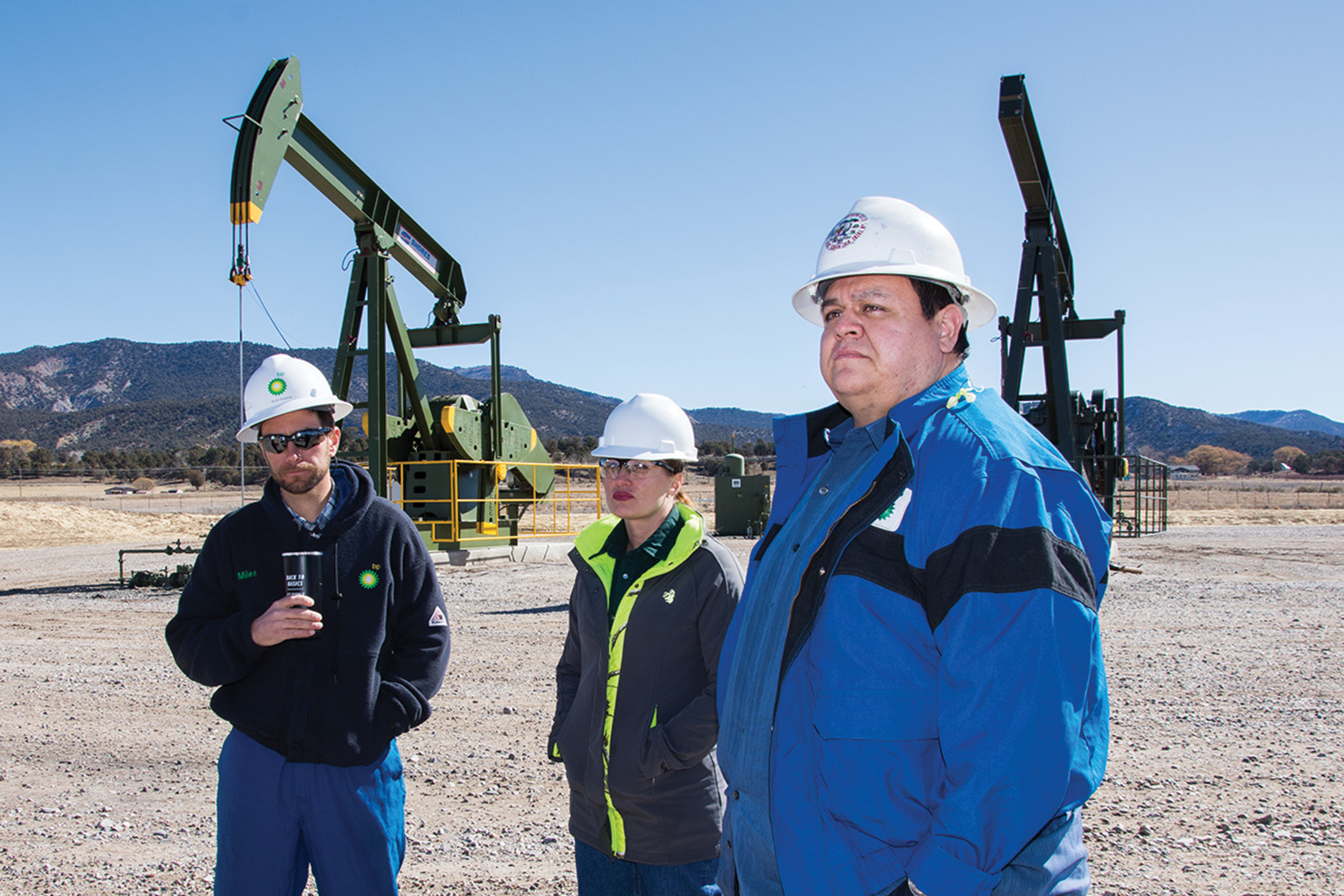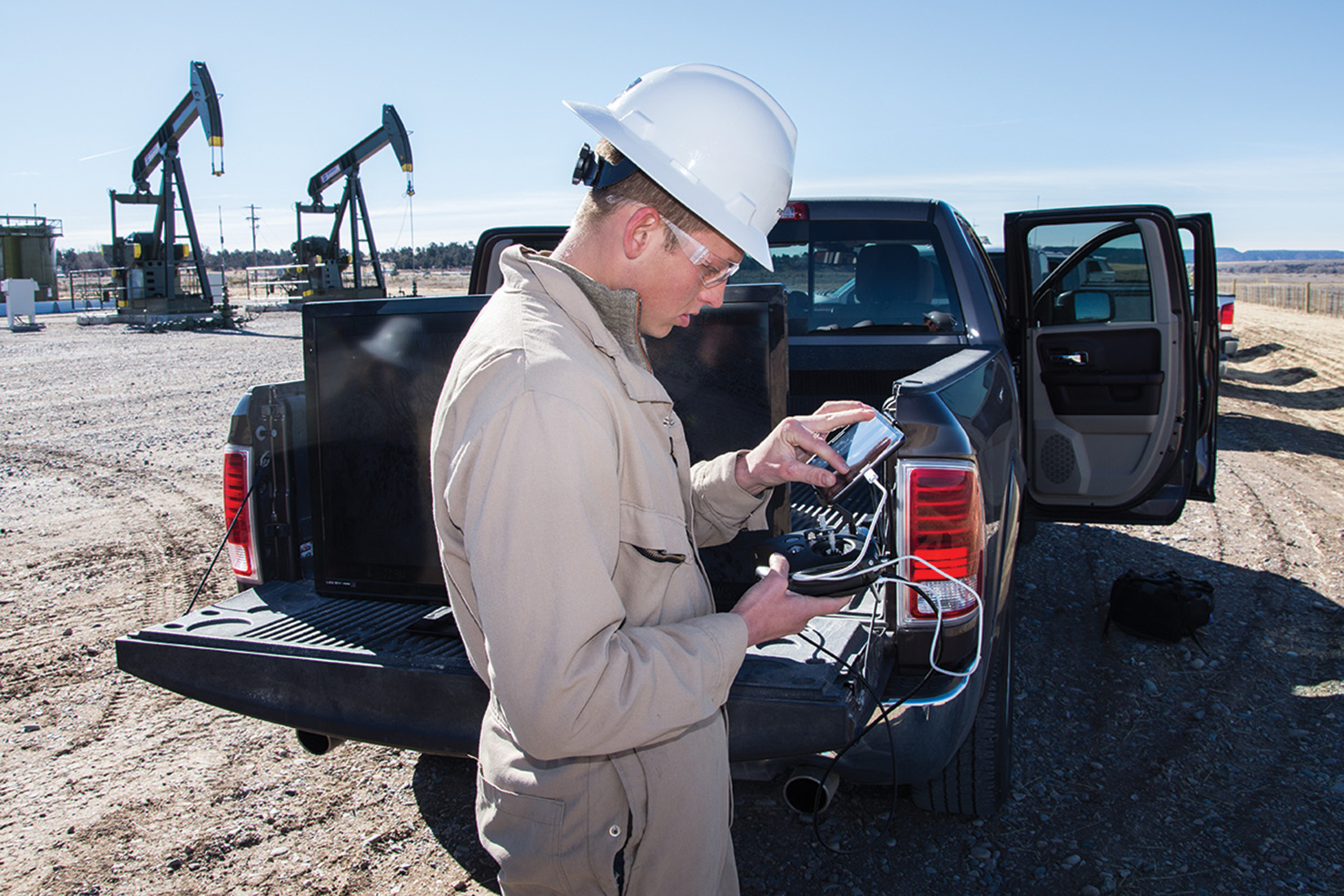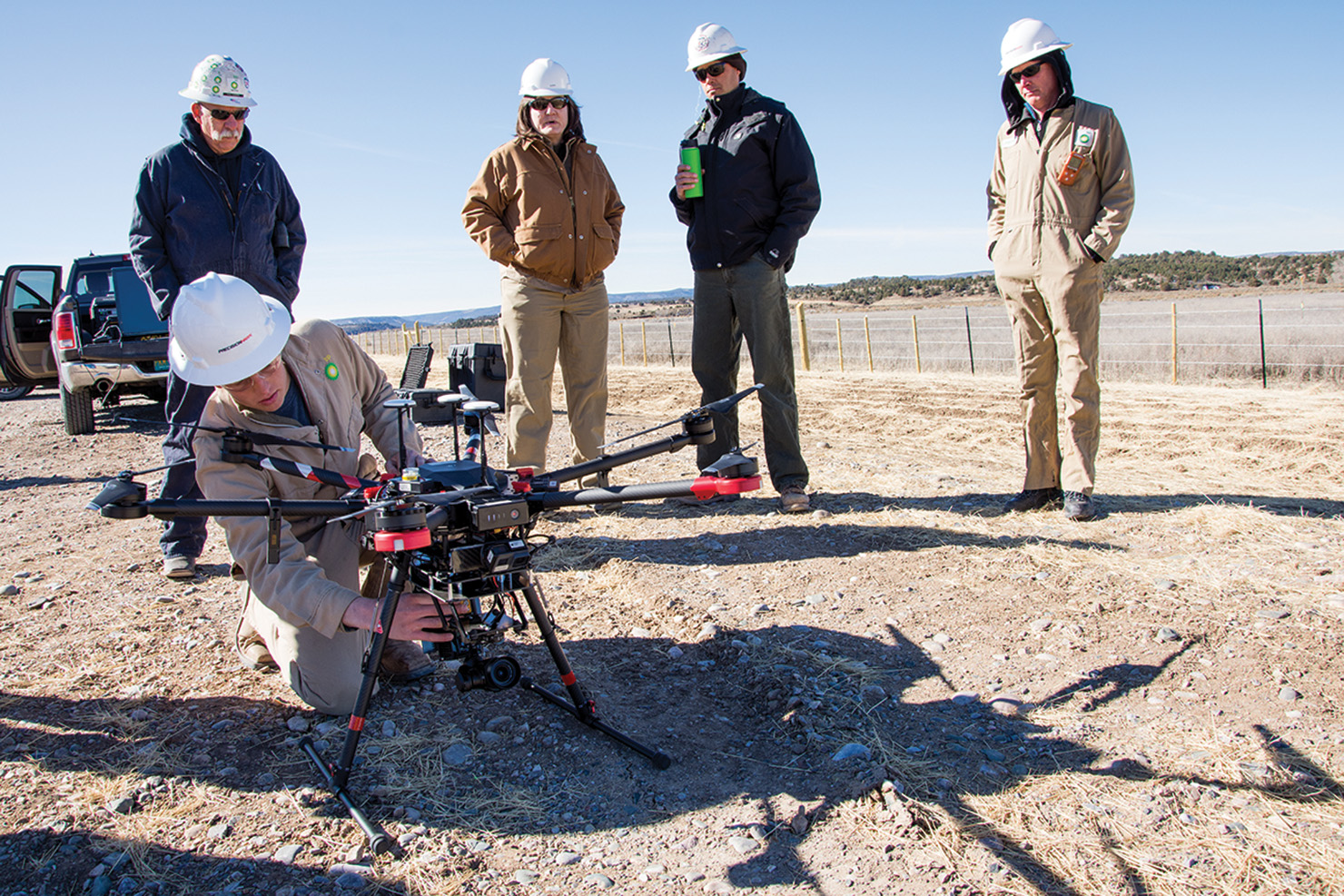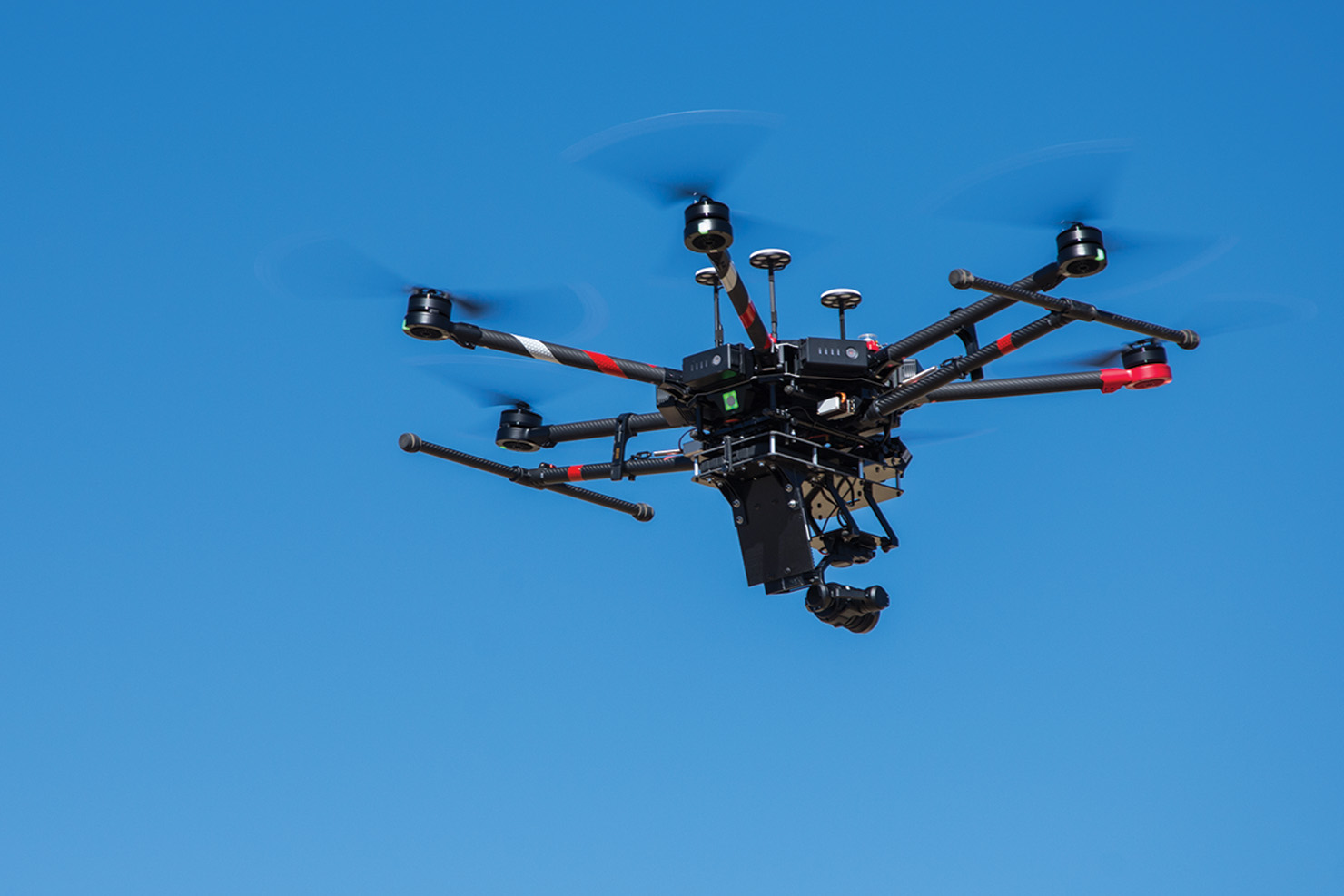Routinely inspecting the miles of pipeline which crisscross the Southern Ute Reservation can be a daunting task for operators, pipeline rights-of-ways are typically checked by employees, either on foot or in the air. Periodically companies will secure a helicopter and crew to perform yearly inspections from above, a process that is often disruptive to the landowners, and costly for the company.
Earlier this year, BP worked with the Southern Ute Indian Tribe’s Department of Energy (DOE) to gain approval from Tribal Council to use drone technology to facilitate this process on tribal lands. On Tuesday, March 6, staffers from BP, along with their contracted pilots, gave a comprehensive demonstration of their drones in action. The drone flights took place just south of Ignacio, Colo. Staging was held at the Tiffany Pad 1, on the Southern Ute Reservation.
“It’s good to see this happening,” Southern Ute Councilman Adam Red said regarding the implementation of drones. This will lower the impact of traffic on the landscape, he explained — vehicles, foot patrols, ATV’s; especially for those areas which are environmentally sensitive due to surface reclamation. Red is no stranger to field work, as a former employee of the Southern Ute Growth Fund, he has a long history with GIS and the Department of Energy. Red was an early proponent of implementing drone technology in the field.
These state-of-the-art drones are packed with technology, and backup systems which insure redundancy in the field. Go pro cameras and GPS navigation, in addition to costly methane sensors require these drones to be manned by licensed aviation pilots — not just one, but a team of two pilots who work in tandem to insure each flight is flawless.
Perhaps the main concern in adopting this technology for inspection purposes is community support, and awareness among residents whose property is adjacent to the pipelines, and right-of-ways. While the physical traffic will be greatly reduced for inspection purposes, it is important for residents to recognize that the drones are affiliated with BP, and the inspection process required by law. Despite their size, the drones are nearly silent from a distance, omitting anywhere from 5-10 decibels of sound when airborne.
“There has been fluid communication between the Department of Energy and Southern Ute Tribal Council,” said Karen Spray, Exploration and Production manager for the Department of Energy. She went on to cite efficiency, environmental impact and safety as just a few of the reasons the drone inspections will be beneficial to everyone involved. While numerous operators work within the boundaries of the Southern Ute Reservation, BP is the first to implement drones for their inspections. Helicopters have been used for aerial inspections for over a decade, BP wants to use this current drone data to make a comparison.
PrecisionHawk, the company responsible for operating the drones for BP has been contracted for a full year, notices will be posted in regional newspapers, including The Southern Ute Drum, alerting residents to the new inspection process. If landowners have any concerns, they are encouraged to call the Southern Ute Department of Energy; furthermore, drone flights will only be conducted during daylight hours, typically operating from Monday-Friday providing good weather and clear skies.








